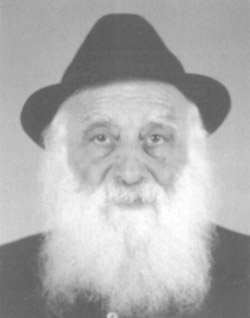
Yosef Belkin
|
|
Born in 1921 in Priluki, to a Zionist family, which observed Jewish traditions and moved to Moscow, in 1932, to get legal permission to go to Palestine, only to have their request denied. He was conscripted into the Red Army, participated in WW2, was wounded and also decorated for bravery .He continued his Zionist activity in the army, among his friends, and participated in an underground Zionist organization in Moscow after the war. He was arrested in 1950 and sentenced to 5 years imprisonment in high security camps. Released in 1955, he continued his Zionist activity. Not till 1971 did he get to Israel.
|
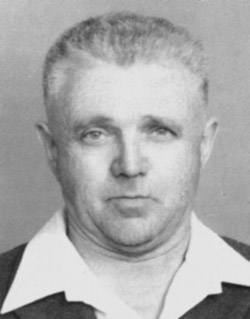
Zelig Davidovich
|
|
Born in 1915 in Braila, Romania, he was a First secretary of the Zionist Youth Organization in Romania. From 1935 through 1940 he was a member of the workers’ committee of the Zionist Histadrut, also in Romania. Arrested in 1950 in the Soviet Union, and charged with Zionist activity, he was sentenced to 5 years imprisonment. He served his sentence in the Karaganda camp. He arrived to Israel in 1973 and died in 1982.
|
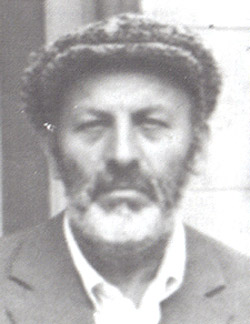
Zalman Friedman
|
|
Born in 1916 in Rechitsa, he joined the underground Zionist organization in Leningrad at an early age, helping Jews emigrate from the Soviet Union to Palestine. He was arrested in 1950 in Leningrad and sentenced to 5 years imprisonment. After his release in 1956 he continued to fight for the right to go to Israel. He finally got permission in 1970. He died in 1982.
|
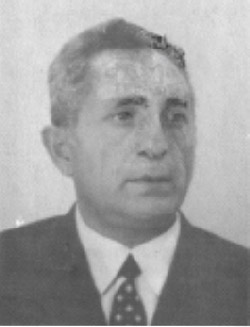
Eliezer Golubov
|
|
Born in 1925 in Gomel, Bielorussia, he was brought up in a Jewish Zionist family which engaged in Zionist propaganda. In 1948, after the foundation of the Jewish State, he applied to the Soviet authorities for permission to go to Israel as a volunteer. In response to that,he was arrested in 1950 and sentenced to 6 years imprisonment but he continued to be engaged in Zionist activity even in concentration camp. He was released in 1956 and in 1972 succeeded in getting to Israel. He died in December 1994.
|
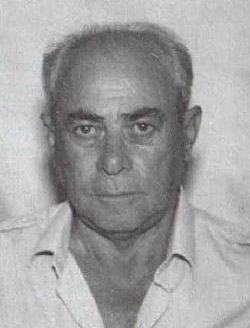
Leib Kantargi
|
|
Born in 1922 in Kishinev, Bessarabia, he participated in the Zionist youth movement “Gordonia”. After the beginning of WW2 he moved, together with his family, to the USSR. In 1946 a representative of the “Gordonia” movement arrived in the USSR to help organize the transfer of Jews to Palestine. Leib Kantargi was arrested in 1950 for his participation in the illegal transfer of Jews across the USSR border and was sentenced to 10 years imprisonment. Released in 1955, he went to Israel in 1973.
|
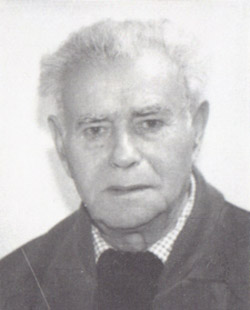
Yosef Kerler
|
|
Born in 1918 in Gaisin, Ukraine, he was conscripted into the Red Army in W.W.2 and wounded in action. He was an actor in the State Jewish Theater in Moscow and also worked for the Jewish Antifascist Committee. He was persecuted by the authorities for his opposition to discrimination against Yiddish culture in Birobidjan. After being arrested in 1950, charged with bourgeois nationalism, Zionism and anti-Soviet activity, he was sentenced to 10 years imprisonment. He served his sentence in the Vorkuta labor camp. Despite being released in 1955, he didn’t succeed in getting to Israel till 1971. He was both a writer and a poet, in Yiddish, and was awarded poet Itzik Manger prize for his literary achievements. He died in 2003.
|
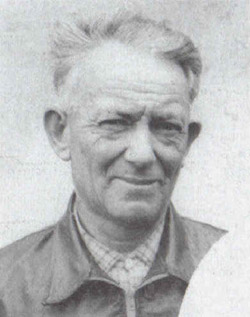
Strul Leibovich
|
|
Born in 1909 in Czechia,(then part of the Austro-Hungarian empire) he was a member of “Beitar” from 1927. Arrested in 1950, he was charged with Zionist activity and sentenced to one year’s imprisonment and then to exile. Released in 1951, he immediately began the struggle for his right to go to Israel. His dream was not fulfilled till 1972.
|
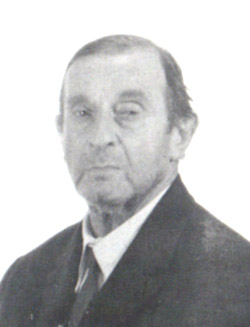
Leonid Lipenbaum
|
|
Born in 1901 in Simferopol, Russia, he became a member of a student Jewish group, “ Youth of Zion “, (in which Jews were prepared for emigration to Israel), during his studies at University. Having made contact with officials of the Israeli Embassy in Moscow, he was arrested in 1950 and charged with possession of an Israeli newspaper. Despite being released from prison in 1956, he didn’t get to Israel until 1971. He died in 1984.
|
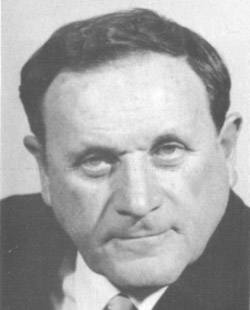
Michael Margulis
|
|
Born in May 1, 1930 in Moscow, he participated in a Zionist underground movement from 1948, while a law student. In 1950 he tried together with a group of students to cross the state border illegally, was arrested and sentenced by OSO ( Special Tribunal Committee) to 10 years imprisonment. During investigation he was kept in Lubianka, Lefortovo and Butyrka prisons, and from 1951 through 1955 he served his term in the special camps in Siberia. After his release, from 1956 through 1971 he was engaged in illegal Zionist activity in Moscow, printing materials of the Jewish “Samizdat”. He has been living in Jerusalem since November 1971. From 1973 he worked as photographer for the Israel radio and television. He is a member of the Union of Israeli journalists and published his writings in the Israel newspapers and magazines in Russian and in Hebrew. He wrote a book “Jewish cell of Lubianka” which was published in Hebrew and Russian. He is a Chairman of the Committee of the Prisoners of Zion Organization.
|
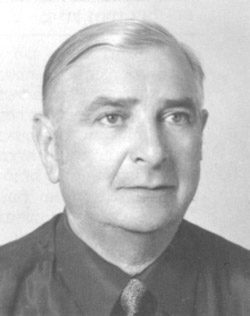
Haim Mikuninas
|
|
Born in 1915 in Kovno, Lithuania, he became a member of “Beitar” at an early age. Arrested in 1950 for the Zionist activity, he was tried, sentenced to imprisonment and then released in 1954. He went to Israel in 1969 and died in 1985.
|
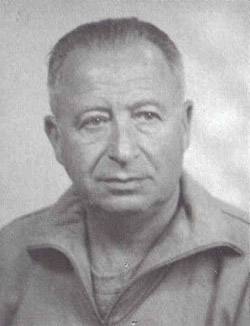
Anatoly Raban
|
|
Born in 1923 in Moscow, he experienced the arrest and execution of his father, who had been charged with Jewish nationalism, in 1937. Anatoly was conscripted into the Red Army in 1944 and in 1950 was arrested, charged with Zionist activity and sentenced to 10 years imprisonment. He served his sentence in the camps of Minlag and Suranta in the Komi ASSR. He was released in 1954 and spent many years in a struggle for the right to move to Israel. He was unsuccessful until 1987.
|
| 
|
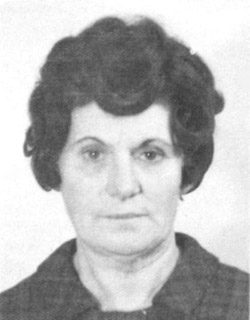
Sarah Rapoport
|
|
Born in 1918 in St Petersburg (then Petrograd), she was engaged, after the WW2, in the transfer of Jews from USSR to Poland on the first leg in their journey to Israel. Moreover she collected donations from Jews for this purpose. Arrested in 1950 in Leningrad, during an attempt to leave the Soviet Union, she was charged with treason and sentenced to 9 years imprisonment. She served her term in the Inta labor camp. After her release, in 1959, she continued battling for an exit visa and only in 1971 did she succeed in getting to Israel with her family.
|

Ze’ev (Wolf) Rishal
|
|
Born in 1904 in Russia, he studied Hebrew during childhood. As a youth he became a member of “He-Halutz” movement. He was arrested for the first time in 1921. Active as a Zionist during all his years of university studies, he was arrested again in 1950 for his Zionist activities and for writing a letter to the Supreme Soviet in connection with creation of the Jewish state. This earned him a sentence of 10 years imprisonment but, despite his early release, he was arrested once again for his contacts with the Israeli Embassy in Moscow and for distribution of Israeli newspapers among Jews. After a sentence of 7 years imprisonment, he was released in 1968 and got permission to go to Israel in 1973. He died in 1989.
|

Beniamin Robinson
|
|
Born in 1915 in Palanga, Lithuania, he became a member of “Beitar” during his youth. In 1934 he was appointed as deputy of a squad commander in Kovno and after that as officer of the “Beitar” leadership in Lithuania. In 1939-40 he was executive editor of the Revisionist daily newspaper “Moment” in Kovno. During WW2 was recruited to the Lithuanian division and fought in its ranks. Arrested in 1950, he was charged with Zionist activity and “Beitar” membership and sentenced to 7 years imprisonment. He was released in 1955 but was unable to get to Israel until 1972.
|
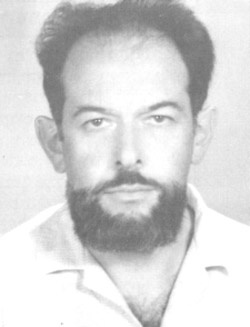
Arie (Leonid) Rotem (Rutshtein)
|
|
Born in 1929, in Leningrad, he became active as a Zionist in the ‘40’s and was engaged in Zionist propaganda, especially after creation of the Jewish State. He was arrested in 1950 and sentenced to 5 years imprisonment. He served his term on one of the special camps but continued his Zionist activity, organized classes for Hebrew study and distributed material in various Soviet cities. He succeeded in getting to Israel but not until 1970.
|
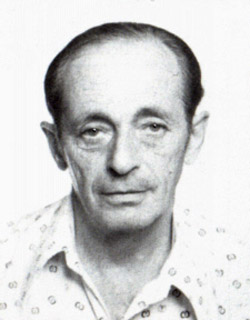
Chaim Shparberg
|
|
Born in 1918 in Kalish, Poland, he participated in a Zionist student organization in his town up to the beginning of the WW2. He was then recruited to the Red Army and became an officer. After the war he became a member of the underground organization of Jewish officers called “Bar Kochba” and, in 1950, joined a group of officers who tried to hijack a light airplane to get to Israel through Turkey. The group was arrested, and Chaim was sentenced to 25 years imprisonment. He served his sentence in camps at Sverdlovsk, Tagil, Karaganda, Nizhnaya Tura, Magadan. Released in 1959, as a Polish subject, he managed to get to Israel in 1960.
|
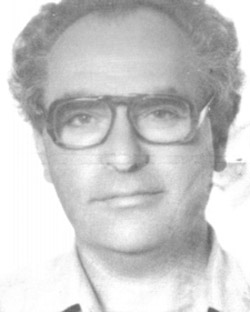
Vitaly Svechinsky
|
|
Born in 1931 in Kamenetsk-Podolsk, he was arrested in 1950, charged with Zionist activity and propaganda and sentenced to 10 years imprisonment. During investigation he was kept in the Butyrka and Lubianka prisons in Moscow. Having served his sentence in the Susuman camp (Kolyma), among others, he was released in 1955 and up to 1967 was engaged in the underground Zionist activity. He began his open fight for repatriation to Israel in 1969 and in 1971 got permission and went to Israel.
|
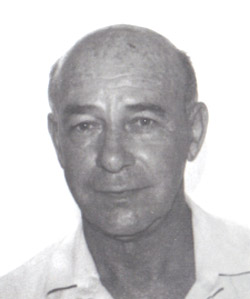
Abraham Tzur
|
|
Born in 1918 in Grodno, Bielorussia, he was from his youth, and up to the beginning of WW2, a member of “Ha-Shomer Ha-Tzair” in his town. He was a leader in Zionist activity and engaged in anti-Soviet propaganda, listening to broadcasts of “Kol Israel” and disseminating their contents. He also tried to leave the Soviet Union but was arrested in 1950 in Grodno and sentenced in Minsk, by the Supreme Court, to 25 years imprisonment. He served his sentence in Omsk and in other camps. He was released in 1956 and after several months managed to get to Israel.
|

Yosef Urman
|
|
Born in 1912 in Bessarabia, he participated as a youth in Zionist youth movements. In 1927 he was among the founders of the “He-Chalutz Ha-Tzair” and was a secretary of the movement. In 1929 he founded a branch of the “Gordonia” movement in Belgrade, Serbia, and was active in the organization of Zionist students. As editor of Zionist newspapers and weeklies, he was in charge of issuing permission for production of kosher food in Telneshti. He worked also for “Keren Kayemet” and “Keren Ha-Yesod”. Arrested in 1950 for Zionist activity, he was sentenced to 10 years imprisonment. Released in 1960, he eventually went to Israel in 1971. He died in 1986.
|
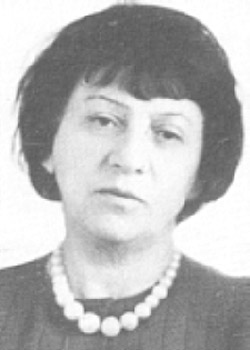
Raisa Zaretskaya
|
|
Was born in 1908 in Donetsk, Ukraine, into a typically assimilated family of those times. Her mother, however, was a Zionist and wanted to give her children a Jewish education and to teach them Hebrew. In 1931 Raisa married the Zionist, Benjamin Zaretsky, who introduced her to Zionist activities. She started to participate in the movement as a youth organizer for literature distribution and other propaganda activities. She distributed hundreds of anonymous letters to the members of the “Politbureau” (the top Communist party officials), in which were expressed support of Zionism. In 1948 all Moscow members of Zionist movements were arrested but Raisa. remained free till 1950, when she was sentenced to 10 years by the “OSO” (Special Tribunal Committee). Released in 1955, she continued to fight for the freedom of movement and emigration to Israel. She left Russia for Israel in 1973. Her husband died in 1983.
|

Yehezkel Zilberman
|
|
Born in 1899 in Kalas, Lithuania, he was a youthful activist in “Beitar” and, up to 1949, was also chairman of “Ha-Tzahar” in Shabli. Arrested in 1950, he was charged with Zionist activity and sentenced to 10 years imprisonment. He served his sentence in camps in Siberia, was released in 1956 and got to Israel in 1966. He died in 1972.
|
|